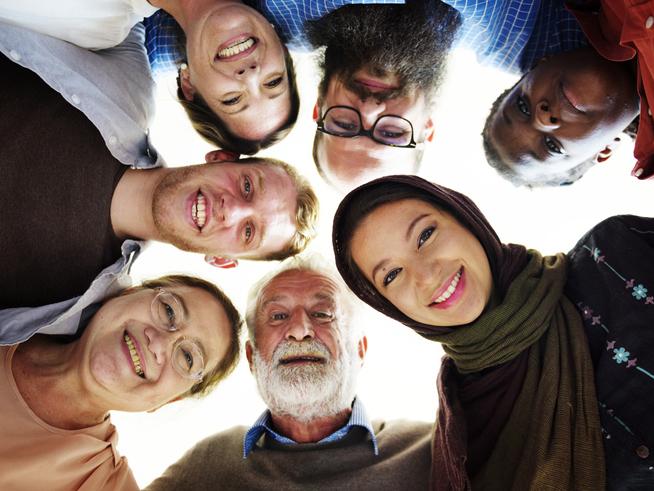Whether as a researcher settling into a new institution, an international faculty member adjusting to a new culture or a student new to academia, many of us have questioned our belonging in multiple ways.
We usually understand belonging from a theoretical lens. But everyday experiences show that belonging is not just an individual journey – it’s a collective responsibility. That’s why we must move beyond theory and policy. Many barriers to belonging don’t always come from exclusionary intent, but they create real emotional and professional hurdles for those who experience them. So, let’s explore the unseen barriers to belonging in higher education and, more importantly, the small but powerful ways we can break them down.
The inner critic: impostor syndrome and self-doubt
Impostor syndrome is one of the most pervasive yet deeply personal barriers to belonging. It whispers to us, “You don’t deserve to be here.” It makes us undermine our achievements and hesitate to claim our space. As a first-generation university graduate, I remember sitting in my first research seminar, convinced that my institution had accepted me by mistake. I have seen women experience this commonly in male-dominated fields, with the need to constantly prove they are “serious” enough, and also individuals belonging to minority groups. Impostor syndrome thrives in silence, but talking about it openly makes it less isolating. Finding mentors and celebrating small wins can help counter self-doubt.
The weight of expectations: stereotypes and bias
Sometimes, the barriers to belonging aren’t obvious; rather, they exist in the silence of unspoken rules. Academic spaces often come with ingrained traditions, expectations and ways of being that signal who naturally “fits in” and who does not. I remember attending my first faculty meeting back in a business school where everyone seemed to intuitively know how to navigate the space – when to speak, how to present ideas and they were also familiar with the informal cues to academic culture. As someone coming from a different educational background, I found myself hesitating, unsure if my voice carried the same weight. The struggle isn’t about adapting; it’s about challenging whether these norms should be the only way forward.
Since bias often hides in subtle comments and decisions, calling it out in real time and advocating for diverse leadership can shift dynamics toward inclusion. Small corrections can make a big difference.
The lonely spaces: cultural and social exclusion
Belonging isn’t just about formal inclusion, it’s about the everyday experiences of connection. Yet, exclusion often happens in ways that are easy to miss. It might happen at the lunch table where conversations shift into a language you don’t understand, the conference where networking happens over drinks in a setting you don’t feel comfortable in, or the curriculum that fails to reflect diverse perspectives. I’ve seen how international students as well as faculty from marginalised backgrounds both struggle with this and are constantly expected to “adjust” rather than be embraced as they are.
- Spotlight guide: How to build belonging at your institution
- Not all students want to fit in, but every student wants to matter
- How to initiate conversations about belonging
True belonging isn’t about blending in but about making space for different ways of being. Unwritten rules in academia often exclude, but we don’t have to navigate them alone. Senior scholars can reject these norms by mentoring newcomers, organising inclusive social events that offer multiple ways to participate, and valuing diverse voices in both curriculum and conversations. At the same time, for those experiencing exclusion, seeking out affinity groups and forming peer networks can help us feel a sense of belonging. Belonging is something we build together, even if the larger system is slow to change.
The battle against bias: systemic and subtle discrimination
Bias isn’t always loud – it’s often subtle, disguised as feedback, expectations or opportunities we are (or aren’t) offered. I remember sharing a deeply personal story about how my mother was deprived of an education during an experience-sharing session. Right after I spoke, a scholar commented: “I wonder how you speak English so fluently when it’s not even your first language.” While likely intended as a compliment, the shift in focus – from what I was saying to how I was saying it – was a reminder of biases that shape belonging.
Cultural biases often appear in subtle ways; consider whose perspectives are considered “academic”, whose experiences are seen as universal and who is expected to adapt. These biases may seem small, but they accumulate, reinforcing invisible barriers that can leave us questioning our sense of belonging. To remedy this, we must rethink norms – who speaks, who is heard and whose expertise is valued. A small shift, like questioning our own assumptions and ensuring diverse voices are actively included, can transform institutional culture. But these shifts take time, and until then, we need to seek out spaces, both formal and informal, where our voice is genuinely valued. Joining or forming our own writing and reading groups, research circles or informal mentorship networks with others who share our values or respect our experiences can make a real difference.
When our perspectives are sidelined, it’s also powerful to document our insights, advocate for our experiences in ways we feel safe and connect with allies who can amplify our voice. By recognising that our knowledge is valuable even if it’s not always validated by dominant norms, we can begin to reclaim our space rather than silently conforming. Belonging sometimes starts by affirming our own voice before others recognise it.
Bhawana Shrestha is a research fellow at Learning for Future Excellence and the Academy of Future Education at Xi’an Jiaotong Liverpool University.
If you would like advice and insight from academics and university staff delivered direct to your inbox each week, sign up for the Campus newsletter.




comment